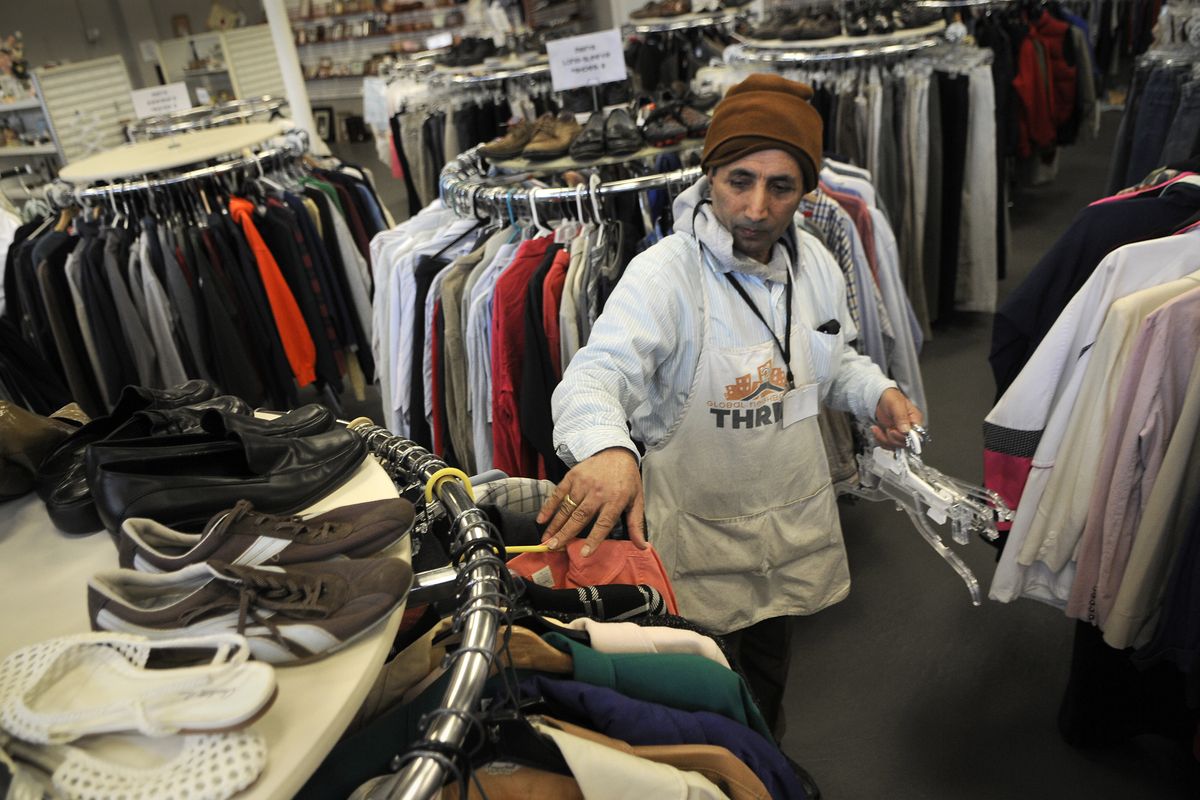Selling a change
Nonprofit shops generate jobs – and also revenue that leaders say helps them survive

When Jan Martinez founded the Spokane nonprofit Christ Kitchen 15 years ago, she relied on individual or company donations to keep the operation going. Its original goal was to serve as a social and spiritual hub for women in poverty.
Before long, however, Martinez, the 57-year-old executive director of Christ Kitchen, realized that helping women find jobs needed to be the organization’s first goal.
“Those women would all have said they were essentially unhirable at that point,” said Martinez, noting that the nonprofit, at 2410 N. Monroe St., works with women who have endured domestic violence, chronic poverty, homelessness or addiction.
Over the next several years, Christ Kitchen created three businesses: packaging and selling soup and dessert mixes; preparing catered boxed lunches for area companies or groups; and operating a restaurant. Those endeavors now provide jobs and regular income for more than 30 Spokane women.
“People say that that’s social entrepreneurship,” Martinez said. “I guess the term fits, even though it’s become a buzzword these days.”
Social entrepreneurship is generally seen as using a money-making business as a vehicle to create social change.
It’s a model pioneered by some of the large, established nonprofits such as Goodwill Industries and the Salvation Army, but now smaller nonprofits are following suit. Besides Christ Kitchen, others include Global Neighborhood, which opened a thrift store to help provide jobs and offer services to area refugees; Cup of Cool Water, which operates a bicycle repair shop in part to raise funds to help homeless teens; and Blue Button Apparel, which sells shirts and other items to provide services for at-risk kids.
Nancy Janzen, CEO of Spokane-based Maplewood Software, said many area nonprofits are shifting their focus in part because they realize they no longer can depend on donations, grants and foundation support.
“This is a big deal and a nationally important issue,” Janzen said. “All nonprofits in this economy are being forced to retool and look at ways to replace donations” they no longer can depend on, said Janzen, who is a board member of Christ Kitchen.
Martinez said the three businesses run by Christ Kitchen last year generated about $210,000, which is about two-thirds of the nonprofit’s total budget. The remaining one-third comes from donations, Martinez said.
She expects the three businesses to grow and provide a larger share of the Christ Kitchen revenue pie. “We have a mission to help women, but we also need to try to be self-sufficient,” she said.
As the businesses get larger and generate more sales, the goal is to increase salaries for Christ Kitchen workers.
Brent Hendricks, executive director of Global Neighborhood, said opening a thrift store as a way to support the nonprofit has had clear benefits and also has created a raft of challenges.
At the basic level, the store gives jobs to a number of current or former refugees. The workers include Hari Adhikari, who lived and worked as a farmer in his native Bhutan before having to leave for political reasons. After 18 years living in Nepal, he and his family moved to Spokane three years ago.
His job now is to help unload donated items brought to the store, at 902 W. Indiana Ave. Adhikari then helps clean, price and place the store’s items on shelves.
In operation for just seven months, the Global Neighborhood store may not be profitable for a year or two, Hendricks said. His hope is it will reach the point where it generates a significant part of the nonprofit’s annual budget of $240,000. For now, about half of the budget comes from donations.
Cup of Cool Water, started as a Christian ministry by Mark Terrell 16 years ago, added a for-profit bike repair shop at 1106 W. Second Ave., Cool Water Bikes, in 2007.
Its manager, Noah Sutherland, is the shop’s only full-time employee; he takes on teen apprentices who work on bikes and gain job skills that can help them move on to other jobs.
Like the Global Neighborhood store, Cool Water Bikes is close to being profitable, said Terrell. He expects to turn that corner when the bike shop moves later this year to a bigger storefront at the corner of Third Avenue and Howard Street.
“Our goal is to eventually have two or three (teens) we can hire to work in the shop,” Terrell said.